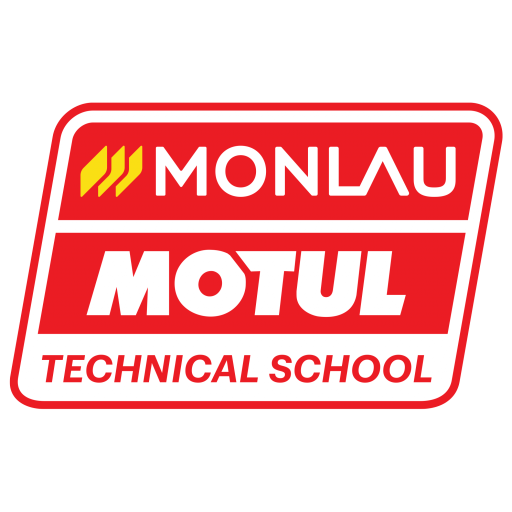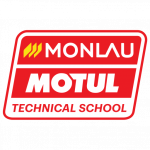Motorsport Engineering MSc Race Cars
Motorsport is a very demanding industry that requires total commitment from everyone involved inside and outside the box. As professional riders are constantly training and preparing themselves for a successful championship, engineers and technicians have to act in the same way and in parallel, with the same working method and knowledge.
Objetive
We will teach you the experience that a specialized Motorsport engineer has in their day to day. You will enter inside a box and you will know its language and interpretation of motorsport.
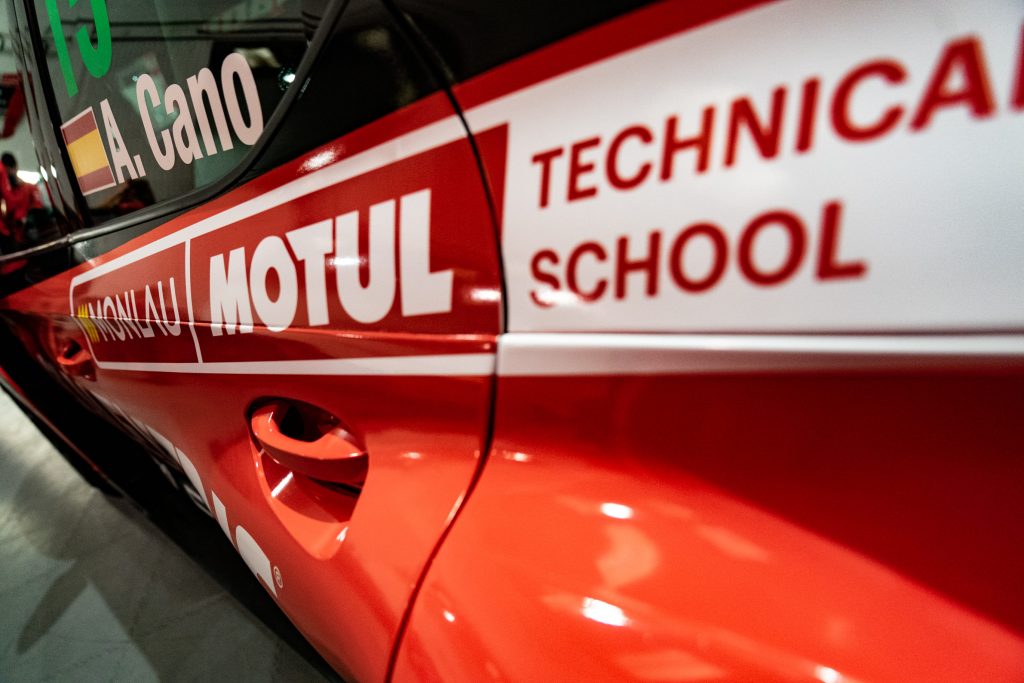
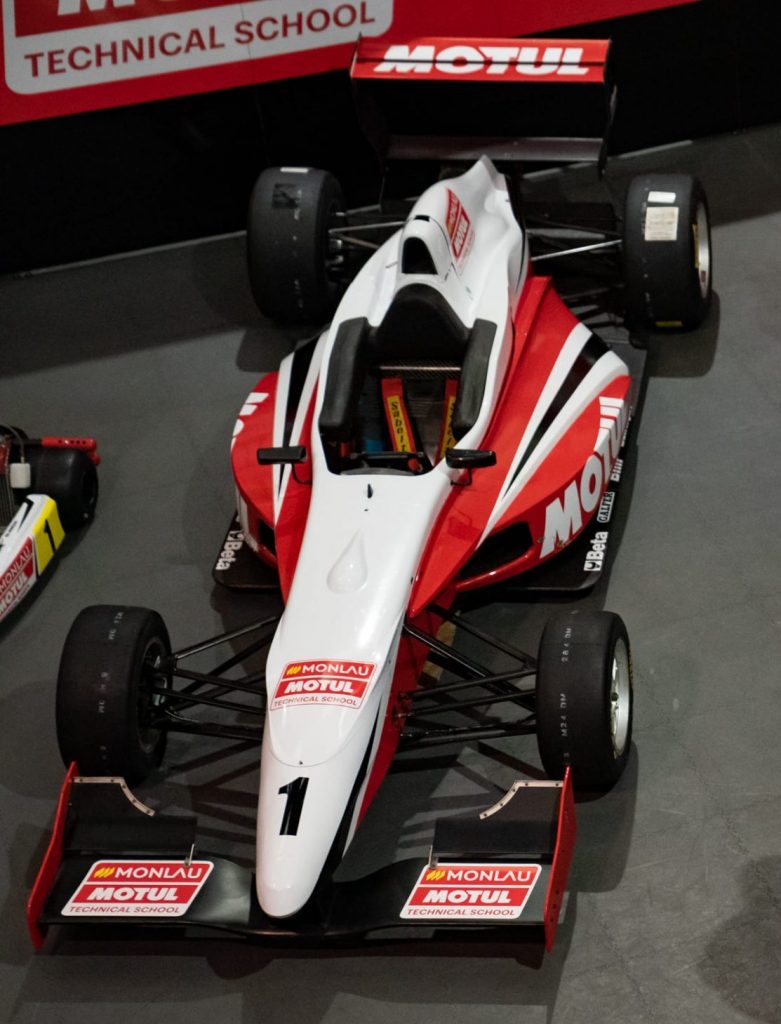
High level training
A staff of teachers, active technicians and with extensive experience, who develop their professional life on the circuits, competing in national and international championships
1. Be passionate about Motorsport.
2. Choose the Msc option you prefer, “Sign up”, complete the registration process and we will send you the access codes.
3. Enter with your student user and enjoy a new learning experience that will be of great help.
Take as much time as you need. Organise your calendar and enjoy the different modules programmed in the Msc of your choice.
Price: 2.300€
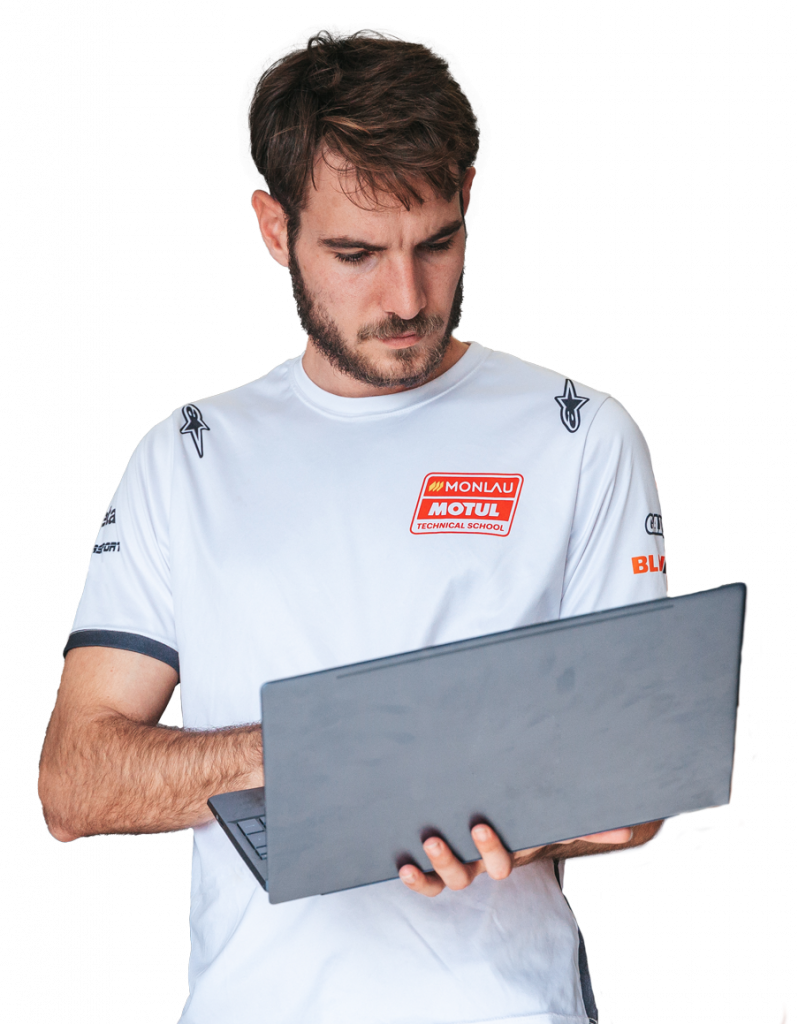
In this introductory module you will learn and enjoy about the history of motorsport from its beginnings to the present day. In addition, we will look at the different FIA and FIM organisations and categories that exist and have existed. You will have some of the sporting regulations that have existed This first module will serve to put us in a situation and to acquire culture in this exciting world.
Thanks to this module you will discover what the current structures are like within a Motorsport team of which one day you could be a member. This module will help you to know in detail what are the tasks of the main members of a team.
It is important that when we talk about a piece you can identify what we are referring to. Therefore, in this module we will explain the parts of a racing car and its main function. This module will serve as a glossary of the technical vocabulary we use on a daily basis in the box.
Identify all main parts from a race car and a race motorbike; detailing all main areas of a vehicle: Engine components, aerodynamics devices, chassis parts, powertrain etc. With spare parts detailed module, the student will know perfectly all multiple and different pieces before knowing in
total depth each specific module.
One of the tasks of a motorsport engineer is to make decisions on the set-up of his vehicle. Learn which vehicle parameters modify its behaviour. We will see the tyre and how important it is. You will learn to do different calculations and the steps to consider that serve to achieve a good setting.
To gather extended vehicle dynamics understanding. To apply achieved knowledge into real race car cases. To understand the causes and effects of set up changes regarding race car dynamics.
- Vehicle performance.
- Slip angle and yaw.
- Oversteer and understeer.
- Suspension characteristics and geometry.
- Load trasfer formulae.
- Dampers and damping theory.
- Vehicle mathematical model.
- Tyres.
- Differential.
- Set up.
In order to be able to give directions to our drivers and to understand the behaviour of our vehicle, it is necessary to have objective data. We will see the components of an acquisition system and different examples that will help us to understand and interpret the data.
- Sensors used in race car data acquisition.
- Description, calibration and interaction of sensors and ECU.
- Data analysis: chassis and engine.
- Data engineer job description.
- Main software used are : AIM, PI and Magneti Marelli.
To achieve the best time and be the fastest, speed and power are not enough. The braking variant can be decisive during a race. In this module we will see the parts that make up a braking system, the different problems that we may have, and their solution. As well as perform an optimal braking calculation.
- Brake system description, components, functionality and characterization.
- Brake balance calculation and sizing of brake components.
- Description of main brake problems and solutions proposed.
- ABS and brake by wire system description.
The suspension elements take on a special importance for the dynamics of our vehicle and consequently for its performance on the track. In this module we will seeat the different parts and types of shock absorbers which will help us to better understand the dynamics of our vehicle.
- Working principles of common shock absorbers.
- Shock absorber characterization on dyno.
- Springs, helpers, bump rubbers and its combination and interaction on vehicle setup.
- Natural frequency and damping coefficient calculation and choice depending on conditions.
- Hydraulic adjusters, working principles and effects on vehicle dynamics.
The engine is one of the main parts of our racing vehicle. In this module we will see what types of engines exist, the different parts that compose them, as well as the different steps and calculations that are considered for their mechanical preparation.
To analyse and understand the different kind of engines (2 stroke, 4 stroke, Otto, Diesel, turbo, etc.)
- Needs for each kind of car, from formulas to GT’s.
- Electronics applied.
- Different elements of the transmissions (gear box, differentials, etc.)
- Assembly of the different elements.
Good lubricant and fuel conditions will affect the final performance of your vehicle. In this module we will explain what types of lubricants exist and how they will help us to make the best choice for our racing vehicle.
- Motul partnership.
- Race fuel and lubricants fabrication, chemical composition, main features analysis and its effect in race engine performance.
- Fabrication, homologation and logistics to supply in racetracks.
When the mechanical system is not enough, it is necessary to take advantage of all available physics in order to achieve better performance. Aerodynamics is one of the solutions that is becoming increasingly important. This module will help you to understand the different aerodynamic elements and what parameters need to be taken into account.
This module extends the concepts of the aerodynamics block. In this case we will focus on the Aero maps and look at an example of a calculation to achieve an optimal aerodynamic balance.
Main principles of aerodynamics and fluid dynamics. To obtain an overview of aero concepts and body interaction.
Knnowledge of aerodynamic formule and its application.
- Bernoulli’s equation.
- The boundary layer.
- Lift and drag coefficients.
- Principles of aerodynamics and fluid dynamics.
Achieving a correct and controlled relationship between the movement of the engine and the driving wheels is vital and this is thanks to transmission systems. In this module we will see at the different systems and calculations in order to have an optimal ratio.
- Basic transmission layouts used in race cars.
- Component description.
- Gear ratios calculation.
- Race clutch description and classification.
- Organic, sinter and carbon clutches.
Motorsport uses a wide range of materials to manufacture parts. The choice of materials for the different elements is not arbitrary. In this module you will learn what features each one has and the performance they can offer in Motorsport.
General overview of the materials used in motorsport. Learn how to choose the correct material for a given element or how to distinguish them. Know the basic properties of each material.
- Properties of the materials.
- Physics
- Mechanicals
- Classifications of the materials.
- Metals.
- Ceramics.
- Polymers.
- Semiconductor.
- Compounds.
- Analysis race motorbikes needs.
- Analysis of the needs.
- Actual design.
- Welding process.
Frequent questions
- Short lessons so you can learn on the go, on any device, anywhere. No more than 20 minutes a day.
- You will have a very easy to use and intuitive platform to follow the program.
- Each time that you finish a class, the next class will be unlocked. So you can go through the program at your own pace.
- You will have a community where you can share, contribute, ask questions and most importantly, connect with people like you.
- You also have downloadable material in each block to support the classes and expand as far as you need to.
- They are approved by our own experience of our own institution Monlau Motul, for our more than 20 years training future professionals. We want our courses to be dynamic, we constantly update them according to the latest technical developments and therefore we do not want to lose flexibility.
- All our courses are recognized by the Real Spanish Automobile Federation and the Real Spanish Motorcycling Federation.
Our masters have the balance to help from junior profiles with no experience, to professionals with years of experience in their sector. It is good for all of us to update ourselves and learn new concepts. All with a common denominator: his passion for Motorsport.
-
Yes. The programme is made up of videos and additional study resources in text: summaries, templates, pdfs, etc.
-
From a PC or laptop, tablet or mobile phone. Any digital device with internet access. The ease that our courses give you will make learning as easy and intuitive as possible. Wherever and whenever you want.
Of course, at the end of the course or modules you choose, we will send you a diploma certified by Monlau Motul and recognized by the Real Cars Spanish Federation and the Real Motorbikes Spanish Federation.
